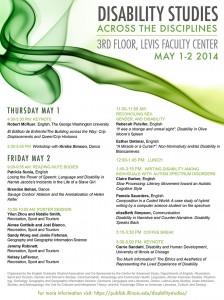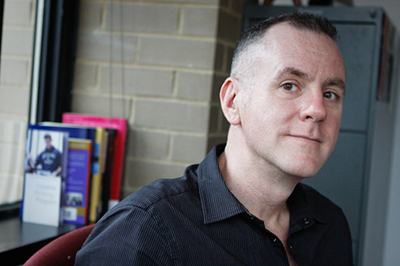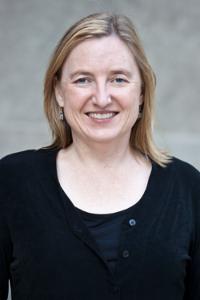“Disability Studies across the Disciplines” will be held May 1- 2, 2014 on the third floor of the Levis Faculty Center, and it promises two days of stimulating discussion—including two keynote presentations, three panels, a poster session, and a Thursday-evening reception. The student presenters come from five departments, and the colloquium itself is supported by 18 different departments and organizations.
Organized by the English Graduate Student Association and Co-Sponsored by the Center for Advanced Study; Departments of English, Recreation, Sport and Tourism, Gender and Women’s Studies, Communication, Kinesiology and Community Health, Linguistics, African American Studies, Psychology, Sociology, Geography and Geographic Information Science, Germanic Languages and Literatures, Dance, Latina/Latino Studies, Asian American Studies, and Anthropology; the Unit for Criticism and Interpretive Theory; and the Trowbridge Office on American Literature, Culture, and Society.




